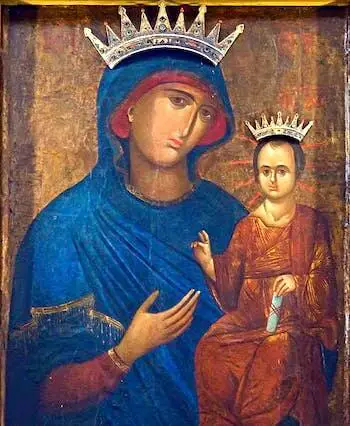Loyal and unwavering in one’s opinions or support for a cause.
True blue
What's the meaning of the phrase 'True blue'?
What's the origin of the phrase 'True blue'?
‘True blue’ is supposed to derive from the blue cloth that was made at Coventry, England in the late middle ages. The town’s dyers had a reputation for producing material that didn’t fade with washing, that is, it remained ‘fast’ or ‘true’. The phrase ‘as true as Coventry blue’ originated then and is still used (in Coventry at least). The town’s standing was recorded in 1670 by John Ray in the first edition of A Compleat Collection of English Proverbs:
“Coventry had formerly the reputation for dying of blues; insomuch that true blue became a Proverb to signifie one that was always the same and like himself.”
There are other theories as to the origin of ‘true blue’; for example, the representation in paintings of the Virgin Mary in blue clothing, the purity of lineage of the Spanish nobility (see also blue blood), or the blue aprons worn by butchers.
These derivations are unlikely as they aren’t supported by documentary evidence that link them to ‘true blue’. The Coventry story also has the added credence of closely matching the ‘steadfast, unwavering’ meaning of the phrase.
The change from the literal ‘fast’ coloured cloth to the allusory ‘steadfast’ loyal supporters came around the time that Ray was writing his book of proverbs. The Covenanters were a group of 17th century Scottish Presbyterians who swore to uphold the National Covenant and oppose the rule of James IV of Scotland. They wore blue as their badge and those who unequivocally supported the cause were called ‘true blue’. Samuel Butler referred to this denomination in the satirical poem Hudibras, 1663:
For his Religion it was Fit
To match his learning and wit;
‘Twas Presbyterian true blue
The Covenanters are no longer politically active, although the name survives as the nickname of the Reformed Presbyterian Church. Conservative politics has also maintained an association with the phrase and blue was adopted as the colour of the Tory Party in England (later called the Conservative Party). Staunch Conservative supporters, those whom Margaret Thatcher would have called ‘one of us’, are known as ‘true blue’ Tories.
The history of “True blue” in printed materials
Trend of true blue in printed material over time
Related phrases and meanings
Browse more Phrases
About the Author

Phrases & Meanings
A-Z
A B C D E F G H I J K L M N O P Q R S T UV W XYZ
Categories
American Animals Australian Bible Body Colour Conflict Death Devil Dogs Emotions Euphemism Family Fashion Food French Horses ‘Jack’ Luck Money Military Music Names Nature Nautical Numbers Politics Religion Shakespeare Stupidity Entertainment Weather Women Work
How did we do?
Have you spotted something that needs updated on this page? We review all feedback we receive to ensure that we provide the most accurate and up to date information on phrases.
